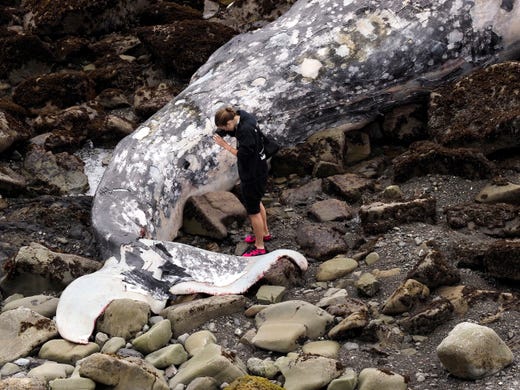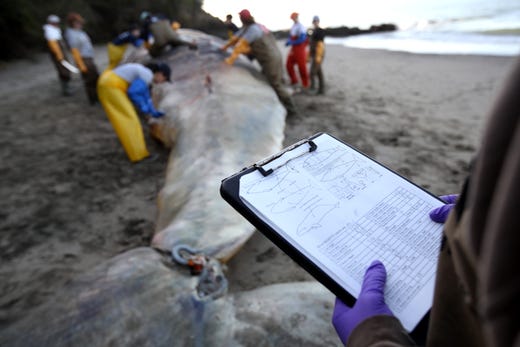animals
Grey Whales Are Dying and We Have Warmer Arctic Waters to Blame
Fifty-eight grey whales and counting. Scientists are guessing warmer Arctic waters are driving these mammals to their death.
Giant carcasses are found alongside the beach of Alaska, particularly in Anchorage. The West Coast of US has become a giant graveyard of Grey Whales as they beached up along the shore of California stretching to Alaska and so far, 58 bodies have been found.
The latest body of a grey whale was found in Turnagain Arm by NOAA (National Oceanic and Atmospheric Administration). The Turnagain Arm is a narrow waterway filled with glaciers and the biggest question mark here is how a grey whale ended up in this place. It’s an area rarely ventured by grey whales.

Food problem.
Experts have several theories that may explain why more grey whales are dying along the coast. Necropsy performed on these whales explains their cause of death: undernourishment.
The strongest standing hypothesis is that the mammals failed to gain enough food in the summering grounds. Grey whales generally travel to Bering and Chukchi seas to find food, form fat, and continues their annual migration that extends up to 12,000 miles far.
They stock up enough to allow them to travel to the mating ground and then back to their feeding ground a year later. If they fail to have enough, they will die midway.
“People think that clearly, something happened up there that led the whales to not get as much food,” Milstein said. “Given that they put on the bulk of their weight in the summer season up there, the die is sort of cast there.”, Michael Milstein, spokesperson of NOAA’s Fisheries Service explained.
Overpopulation and warming waters of Arctic.
Another theory that might suggest the malnourished conditions of the dead grey whales might be the rapid increase of grey whale population. The population of the whales have grown up to 27,000 and with such a big number, it’s natural that there will be a fight for food. More whales are going to die.
However, their fight food is intensified by the warming waters of Arctic. The last winter has seen the fewest ice that can sets record since 150 years ago. It has been so hot that seals and birds are dying, impacting the food chain of land creatures, birds and the seas.

“It affects the whole food web from the algae to the krill on up,” said Rick Thoman, a climate scientist at the Alaska Center for Climate Assessment and Policy. The disruption drove away food for the whales, resulting in a tight battle for food and mass deaths of maybe more than just the grey whales.
























